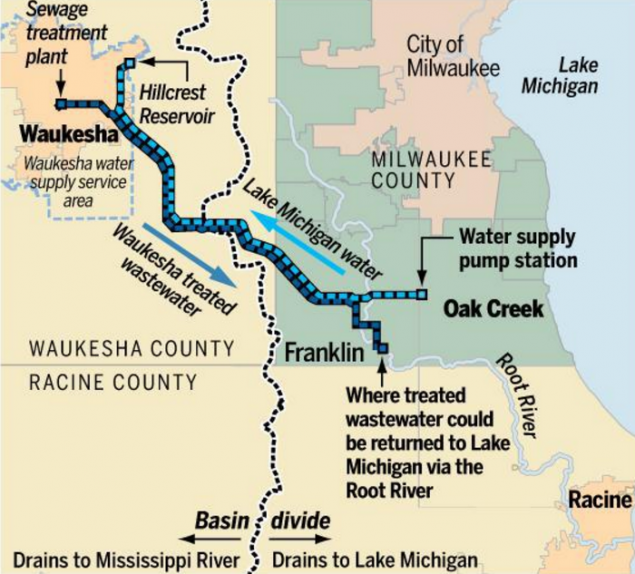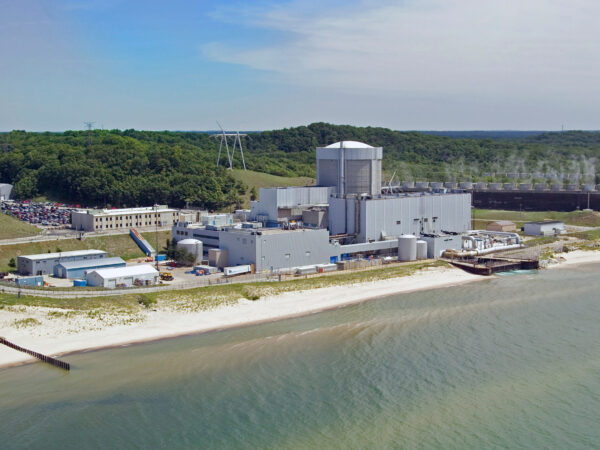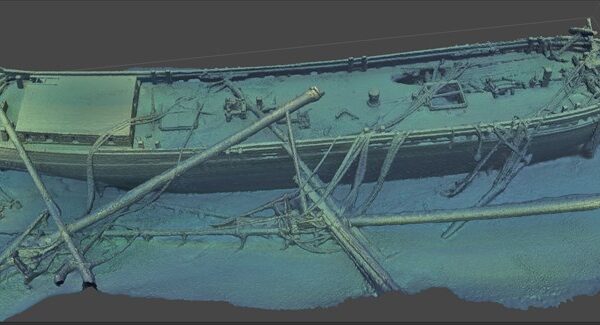
Original 2016 decision allowing city outside Great Lakes Basin to draw water reaffirmed
Great Lakes governors on Thursday reaffirmed their decision to allow Waukesha, Wisconsin to begin using Lake Michigan for the town’s drinking water needs.
In a unanimous vote the Compact Council told the Great Lakes and Saint Lawrence Cities Initiative that there was no basis for the governors to open or modify their decision made in 2016.
Waukesha will be allowed to draw eight million gallons of Lake Michigan water daily. The water will be returned to the lake as treated wastewater.
The Compact Council represents the eight Great Lakes state governors. The Cities Initiative is an organization of over 100 mayors of U.S. and Canadian cities who work on environmental issues.

Grant Trigger, courtesy of Gary Wilson
Council chair Grant Trigger from Michigan said the mayors’ presentation at a hearing showed no erroneous finding of facts, abuse of discretion or conclusions of the law by the council that would warrant another look at the request.
Waukesha has been under a federal mandate to find a new drinking water source by 2018 since its wells are contaminated with radium. The city is just outside the Great Lakes basin but is in a county straddling the basin line which allows it to apply for Lake Michigan water per the terms of the Great Lakes Compact.
The decision was announced in a webinar that was open to the public.

Shawn Reilly, Mayor of Waukesha, Wisconsin, courtesy of the City of Waukesha
In a statement, Waukesha Mayor Shawn Reilly said the “Compact Council made the right call last year, and unanimously affirmed that today.”
Regional environmental groups had also been skeptical that Waukesha’s request complied with the compact.
But tighter restrictions imposed by the governors on how much water Waukesha could take and tougher enforcement standards developed during the final review process brought the environmental groups on board.
“This is a sound decision” Marc Smith said last year when it was announced. Smith is a policy director at the National Wildlife Federation’s Great Lakes office. He said the decision will “set a very difficult path” for others outside the basin who may want Great Lakes water.

David Ullrich, Executive Director of the Great Lakes and St. Lawrence Cities Initiative, courtesy of CGLR
The Cities Initiative’s executive director David Ullrich told Great Lakes Now “although we are not surprised at the decision, we are disappointed.”
“We will be reviewing all of our options for how best to proceed to ensure the long term integrity of the Compact and the Great Lakes,’ Ullrich said.
Any legal challenge by the mayors would have to be filed within 90 days according to Ullrich.




